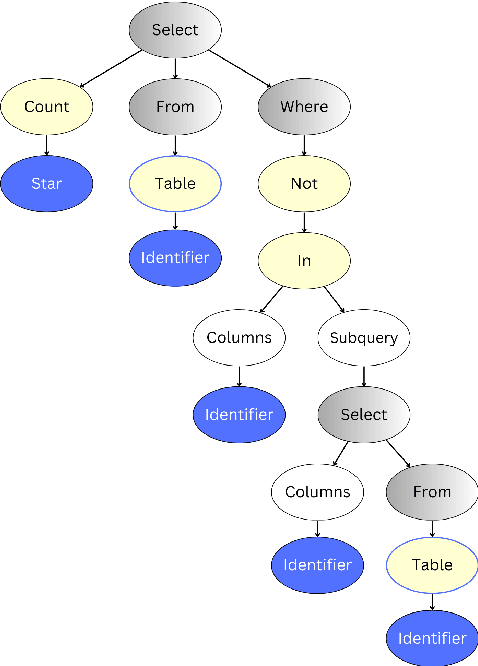Jason Lucas
Graph-based Molecular In-context Learning Grounded on Morgan Fingerprints
Feb 08, 2025



Abstract:In-context learning (ICL) effectively conditions large language models (LLMs) for molecular tasks, such as property prediction and molecule captioning, by embedding carefully selected demonstration examples into the input prompt. This approach avoids the computational overhead of extensive pertaining and fine-tuning. However, current prompt retrieval methods for molecular tasks have relied on molecule feature similarity, such as Morgan fingerprints, which do not adequately capture the global molecular and atom-binding relationships. As a result, these methods fail to represent the full complexity of molecular structures during inference. Moreover, small-to-medium-sized LLMs, which offer simpler deployment requirements in specialized systems, have remained largely unexplored in the molecular ICL literature. To address these gaps, we propose a self-supervised learning technique, GAMIC (Graph-Aligned Molecular In-Context learning, which aligns global molecular structures, represented by graph neural networks (GNNs), with textual captions (descriptions) while leveraging local feature similarity through Morgan fingerprints. In addition, we introduce a Maximum Marginal Relevance (MMR) based diversity heuristic during retrieval to optimize input prompt demonstration samples. Our experimental findings using diverse benchmark datasets show GAMIC outperforms simple Morgan-based ICL retrieval methods across all tasks by up to 45%.
Semantic Captioning: Benchmark Dataset and Graph-Aware Few-Shot In-Context Learning for SQL2Text
Jan 06, 2025



Abstract:Large Language Models (LLMs) have demonstrated remarkable performance in various NLP tasks, including semantic parsing, which trans lates natural language into formal code representations. However, the reverse process, translating code into natural language, termed semantic captioning, has received less attention. This task is becoming increasingly important as LLMs are integrated into platforms for code generation, security analysis, and educational purposes. In this paper, we focus on the captioning of SQL query (SQL2Text) to address the critical need for understanding and explaining SQL queries in an era where LLM-generated code poses potential security risks. We repurpose Text2SQL datasets for SQL2Text by introducing an iterative ICL prompt using GPT-4o to generate multiple additional utterances, which enhances the robustness of the datasets for the reverse task. We conduct our experiments using in-context learning (ICL) based on different sample selection methods, emphasizing smaller, more computationally efficient LLMs. Our findings demonstrate that leveraging the inherent graph properties of SQL for ICL sample selection significantly outperforms random selection by up to 39% on BLEU score and provides better results than alternative methods. Dataset and codes are published: \url{https://github.com/aliwister/ast-icl}.
Beemo: Benchmark of Expert-edited Machine-generated Outputs
Nov 06, 2024Abstract:The rapid proliferation of large language models (LLMs) has increased the volume of machine-generated texts (MGTs) and blurred text authorship in various domains. However, most existing MGT benchmarks include single-author texts (human-written and machine-generated). This conventional design fails to capture more practical multi-author scenarios, where the user refines the LLM response for natural flow, coherence, and factual correctness. Our paper introduces the Benchmark of Expert-edited Machine-generated Outputs (Beemo), which includes 6.5k texts written by humans, generated by ten instruction-finetuned LLMs, and edited by experts for various use cases, ranging from creative writing to summarization. Beemo additionally comprises 13.1k machine-generated and LLM-edited texts, allowing for diverse MGT detection evaluation across various edit types. We document Beemo's creation protocol and present the results of benchmarking 33 configurations of MGT detectors in different experimental setups. We find that expert-based editing evades MGT detection, while LLM-edited texts are unlikely to be recognized as human-written. Beemo and all materials are publicly available.
Fighting Fire with Fire: The Dual Role of LLMs in Crafting and Detecting Elusive Disinformation
Oct 24, 2023Abstract:Recent ubiquity and disruptive impacts of large language models (LLMs) have raised concerns about their potential to be misused (.i.e, generating large-scale harmful and misleading content). To combat this emerging risk of LLMs, we propose a novel "Fighting Fire with Fire" (F3) strategy that harnesses modern LLMs' generative and emergent reasoning capabilities to counter human-written and LLM-generated disinformation. First, we leverage GPT-3.5-turbo to synthesize authentic and deceptive LLM-generated content through paraphrase-based and perturbation-based prefix-style prompts, respectively. Second, we apply zero-shot in-context semantic reasoning techniques with cloze-style prompts to discern genuine from deceptive posts and news articles. In our extensive experiments, we observe GPT-3.5-turbo's zero-shot superiority for both in-distribution and out-of-distribution datasets, where GPT-3.5-turbo consistently achieved accuracy at 68-72%, unlike the decline observed in previous customized and fine-tuned disinformation detectors. Our codebase and dataset are available at https://github.com/mickeymst/F3.
 Add to Chrome
Add to Chrome Add to Firefox
Add to Firefox Add to Edge
Add to Edge